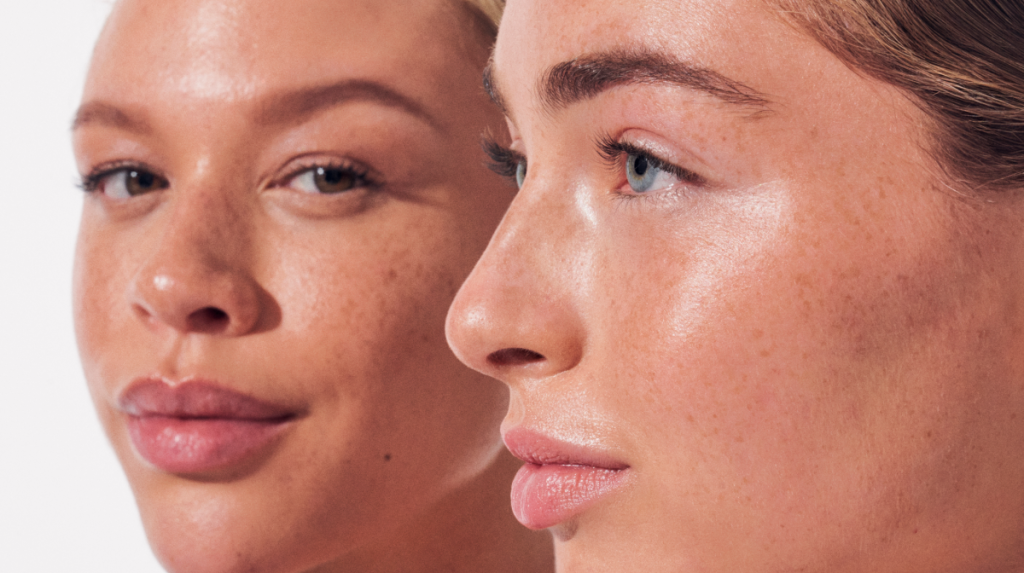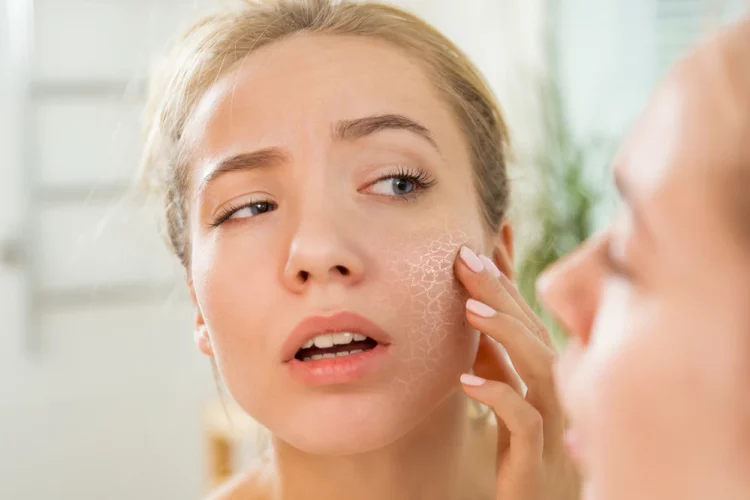Introduction: The Importance of Hydration for Skin Health
When it comes to maintaining radiant, healthy skin, many of us focus on skincare routines, expensive serums, and facemasks. However, one often overlooked factor that has a huge impact on skin health is hydration. Proper hydration plays an essential role in maintaining the overall health of your skin, helping to fight signs of aging, dryness, and dullness. While skincare products are important, no topical treatment can replace the importance of staying hydrated from within.
Water is fundamental to nearly every process in our bodies, and the skin, being our largest organ, is no exception. Skin cells require adequate hydration to function efficiently, and dehydration can quickly lead to visible signs of stress on the skin. In this article, we will explore the importance of hydration for skin health, how water helps maintain skin elasticity and firmness, the recommended daily intake of water, signs of dehydration, and tips to keep your skin properly hydrated.
Water and Skin Elasticity: Hydration’s Role in Maintaining Firmness
One of the most significant ways that water impacts skin health is by helping to maintain skin elasticity. The skin is made up of a complex network of cells that need moisture to function optimally. When you are well-hydrated, the cells in your skin retain moisture, keeping your skin plump and firm. Water helps support the production of collagen, a protein that gives your skin structure, strength, and elasticity. Collagen is critical in preventing sagging and wrinkles, and dehydration can weaken this vital protein, leading to a loss of firmness and resilience.
Adequate hydration also plays a key role in the skin’s ability to heal. When your body is hydrated, it has the resources to repair skin damage more efficiently, whether from sun exposure, environmental pollutants, or minor skin injuries. Water aids in the circulation of nutrients that reach the skin cells, promoting their regeneration and helping to maintain the youthful, firm appearance of the skin.
In contrast, dehydration can negatively affect your skin’s appearance by diminishing elasticity, leading to fine lines and wrinkles. Skin that lacks hydration tends to sag and look dull, and over time, this can contribute to the formation of deeper wrinkles. Hydrating the skin from the inside out is essential in ensuring that it retains its structure and youthful appearance.
How Much Water Is Enough? Daily Water Intake Recommendations
The next logical question is: How much water should you actually drink for optimal skin health? The answer depends on various factors, including your age, gender, body size, activity level, and overall health. However, there are general recommendations for daily water intake that can guide you toward proper hydration.
The common “8×8 rule” suggests drinking eight 8-ounce glasses of water a day, totaling 64 ounces (approximately 2 liters). While this is a good baseline for many people, individual hydration needs can vary. Some people may need more water, particularly if they are physically active, pregnant, or breastfeeding. Others may need less water, depending on their health conditions or if they consume other hydrating fluids regularly.
The National Academies of Sciences, Engineering, and Medicine provides more specific recommendations for daily water intake:
- For men: About 3.7 liters (125 ounces) of total water from all beverages and foods.
- For women: About 2.7 liters (91 ounces) of total water from all beverages and foods.
It’s important to note that these recommendations include all sources of water, not just plain drinking water. Foods like fruits, vegetables, and soups contribute to hydration, as does the water found in beverages such as tea and coffee.
Factors such as hot weather, physical exertion, and dry indoor environments can increase your need for water. When you exercise, sweat, or spend time in hot conditions, your body loses water more rapidly, and you’ll need to replenish it to avoid dehydration. In such cases, it’s essential to drink extra water to help your skin stay hydrated.

Signs of Dehydration: Dryness, Flakiness, Dullness
Dehydration doesn’t always manifest as extreme thirst, so it’s important to be aware of how your skin responds to a lack of water. When you’re dehydrated, your skin is one of the first areas to show signs of distress. Common signs of dehydration include:
- Dryness and Flakiness: When your skin lacks moisture, it can become dry, rough, and flaky. Dehydrated skin has trouble holding onto moisture, leading to the visible appearance of dry patches and irritation. Dryness can make your skin look uneven and tired, and it can be particularly noticeable around the eyes and mouth.
- Dullness: Hydrated skin tends to glow and appear plump, while dehydrated skin looks lackluster and tired. When your skin is deprived of water, its natural radiance is diminished, and it may appear dull or sallow. Lack of moisture affects the skin’s ability to renew itself, leading to an overall lack of vibrancy.
- Fine Lines and Wrinkles: One of the first signs of dehydration is the appearance of fine lines, especially around areas such as the eyes, forehead, and mouth. As the skin loses its ability to retain moisture, these fine lines can deepen, making the skin appear older and more tired than it really is.
- Increased Sensitivity: Dehydrated skin may become more sensitive and prone to irritation. You may notice redness, itching, or a stinging sensation when applying skincare products, and your skin may react more severely to environmental stressors such as sun exposure or pollutants.
If you notice any of these symptoms, it could be a sign that your body needs more water to maintain healthy, vibrant skin. It’s crucial to address dehydration as soon as possible to prevent long-term damage and restore your skin’s natural balance.
Hydration Tips: How to Increase Water Intake and Other Hydrating Drinks
Incorporating enough water into your daily routine may seem like a challenge, but there are several simple ways to boost your hydration levels and promote healthy, glowing skin. Here are some tips to help increase your water intake:
- Carry a Water Bottle: Keep a reusable water bottle with you throughout the day. Having water readily available makes it easier to remember to drink, and you can track your intake to ensure you’re hitting your hydration goals.
- Set Hydration Reminders: Use a smartphone app or set regular reminders on your phone to encourage you to drink water throughout the day. This can help you stay consistent and avoid getting sidetracked by busy schedules.
- Drink Water with Meals: Make it a habit to drink a glass of water with every meal and snack. Not only does this help with hydration, but it can also support digestion and prevent overeating.
- Flavor Your Water: If plain water feels boring, try adding natural flavors like cucumber, lemon, lime, or mint. Infused water is a refreshing way to increase your water intake without added sugars or calories.
- Consume Hydrating Foods: Many fruits and vegetables contain high amounts of water, which can help with hydration. Watermelon, cucumber, oranges, strawberries, and lettuce are all hydrating foods that can contribute to your daily water intake.
- Drink Herbal Teas: Herbal teas, such as chamomile, peppermint, or green tea, are excellent sources of hydration. These teas are naturally low in calories and caffeine-free, making them a great option to add variety to your hydration routine.
- Coconut Water: Coconut water is a natural source of electrolytes, which can help hydrate and replenish lost fluids after exercise or in hot weather. It’s a great alternative to sugary sports drinks.
- Limit Dehydrating Beverages: Certain drinks, such as coffee, soda, and alcohol, can contribute to dehydration. While they don’t completely negate your water intake, they can act as diuretics, making you lose water more quickly. Balance these drinks with plenty of water throughout the day.
Conclusion: Proper Hydration for Radiant Skin
Proper hydration is key to maintaining healthy, youthful, and radiant skin. The skin is the body’s largest organ, and it requires adequate moisture to function optimally. When you’re properly hydrated, your skin retains elasticity, heals more effectively, and maintains a smooth, plump appearance. On the other hand, dehydration can lead to dryness, dullness, fine lines, and a lack of skin firmness.
To keep your skin looking its best, aim to drink enough water every day, along with incorporating hydrating foods and beverages into your routine. The recommended daily water intake varies based on individual factors, but a good baseline is around 2 to 3 liters of water per day, including all fluids and food sources. Staying hydrated from the inside out is one of the most important steps you can take to support your skin health and combat signs of aging. By keeping your skin well-hydrated, you’ll not only enhance your complexion but also improve overall skin function, making hydration an essential part of any skincare regimen.












































